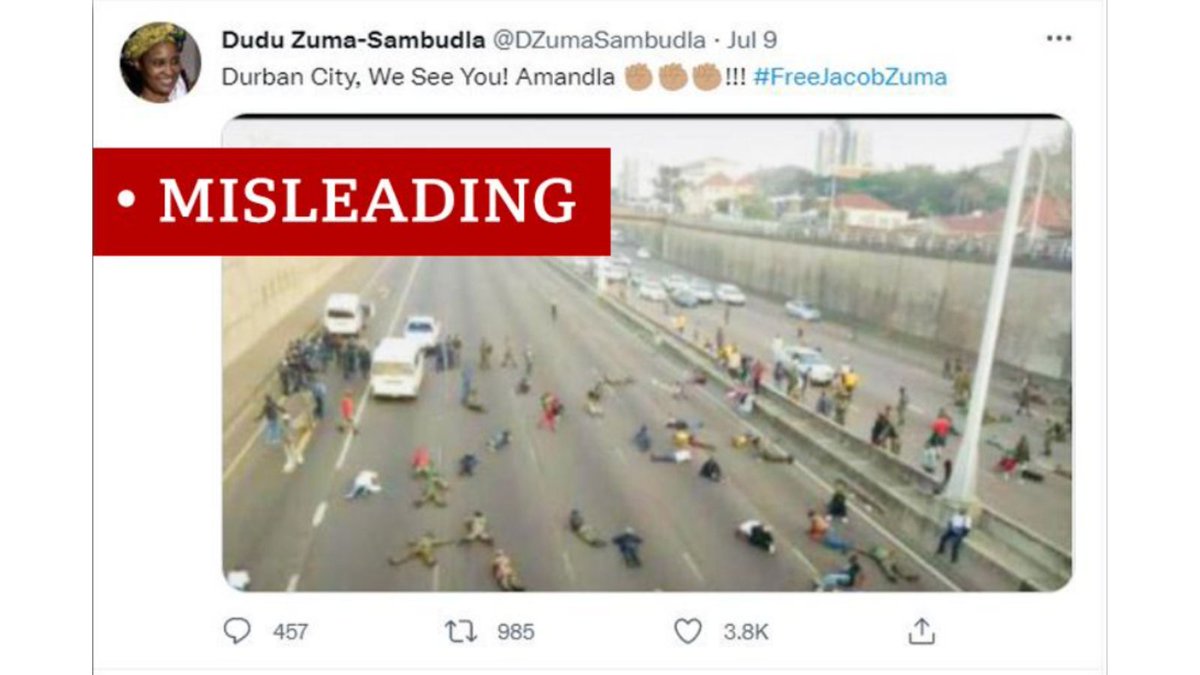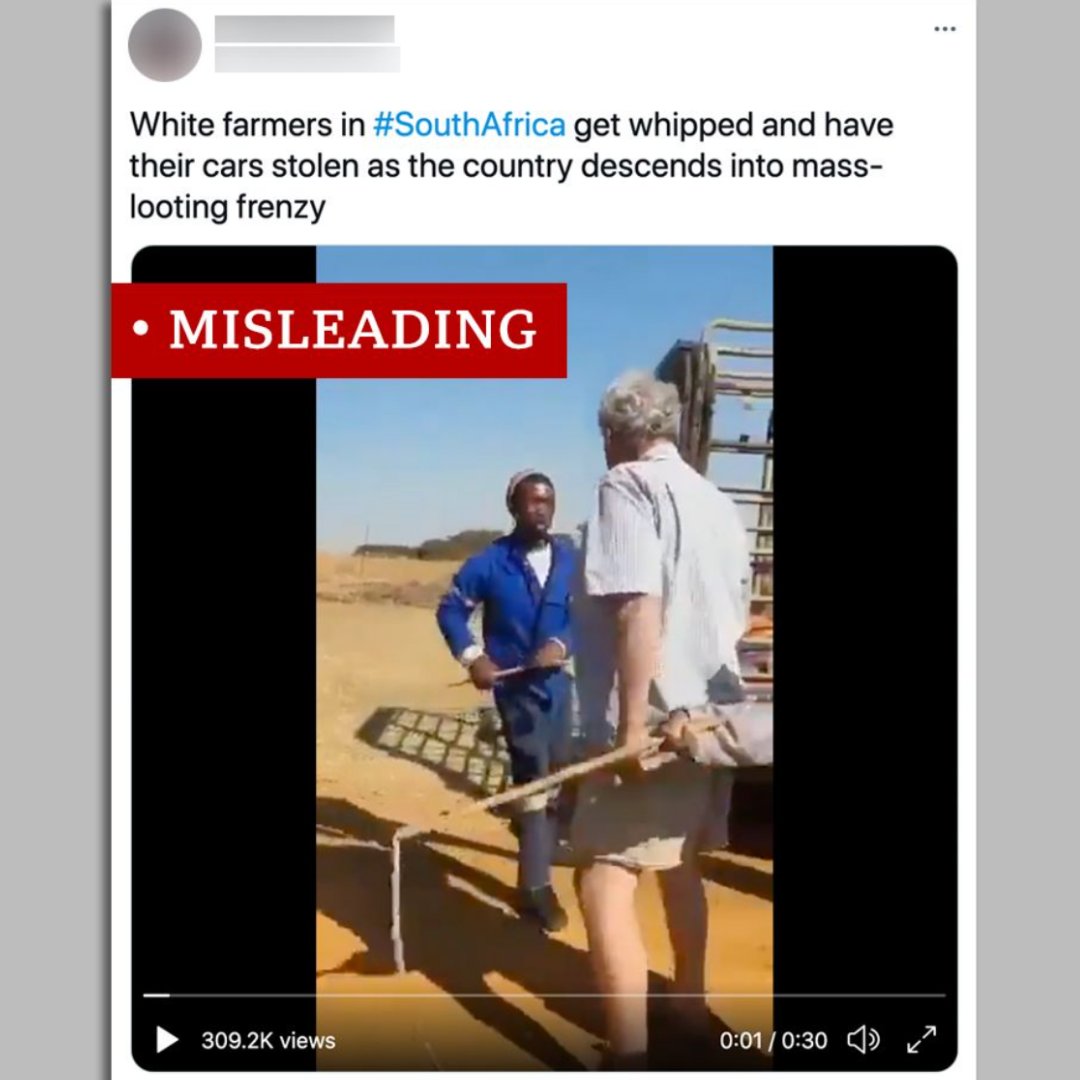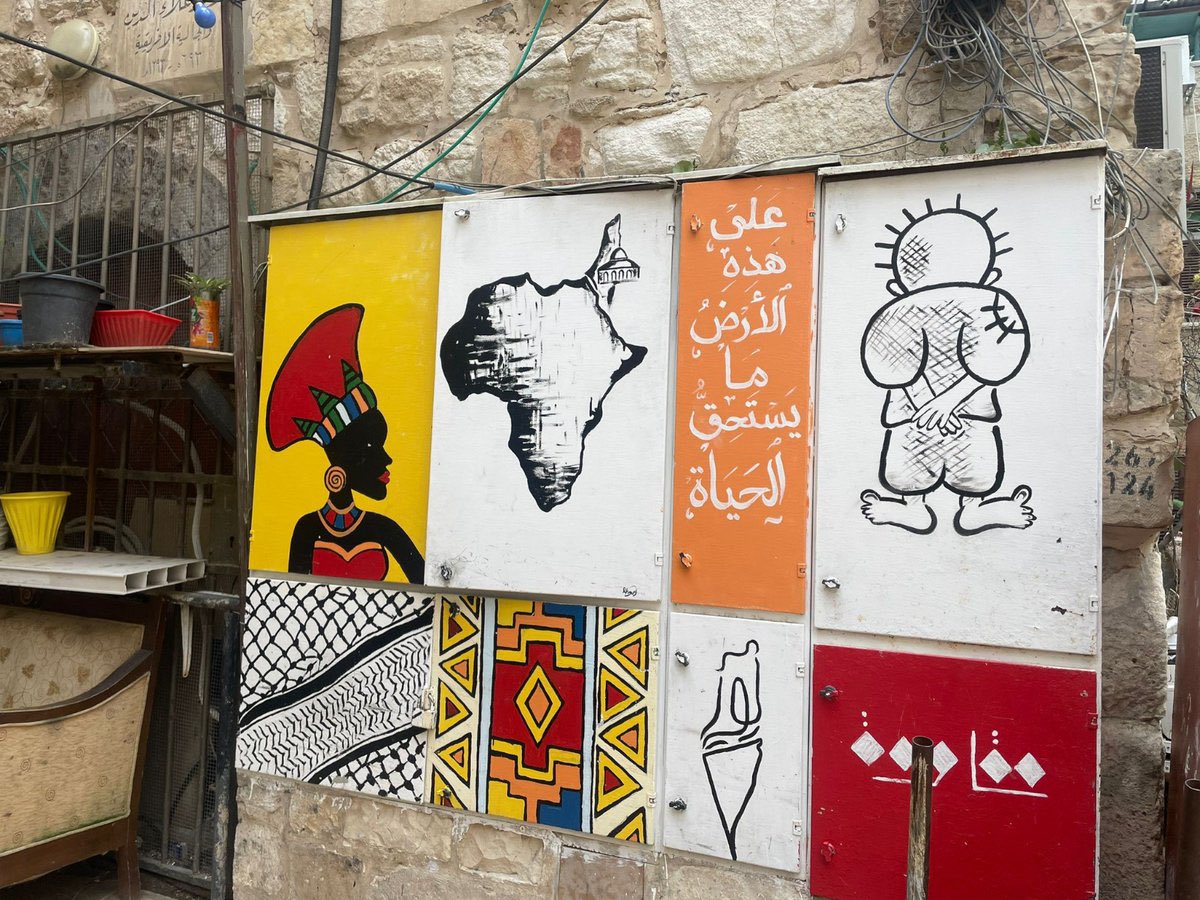As unrest spreads in South Africa following the jailing of former President Jacob Zuma, some social media users have been sharing misleading videos and pictures.
@BBCRealityCheck has investigated some of the most widely shared examples.
A thread 🧵⬇️
@BBCRealityCheck has investigated some of the most widely shared examples.
A thread 🧵⬇️

A doctored image of the former president in prison:
The image claiming to show Mr Zuma in an orange prison uniform has been widely shared, but a reverse image search reveals an almost identical image without him in it.
An AFP photo database shows the photo was taken in 2002.
The image claiming to show Mr Zuma in an orange prison uniform has been widely shared, but a reverse image search reveals an almost identical image without him in it.
An AFP photo database shows the photo was taken in 2002.

A Twitter account for one of Mr Zuma's children used old images:
The post was captioned: "Durban City, We See You! Amandla," with the hashtag #FreeJacobZuma.
However, the image used is not related to recent events, and appears to be from a different set of protests last year.
The post was captioned: "Durban City, We See You! Amandla," with the hashtag #FreeJacobZuma.
However, the image used is not related to recent events, and appears to be from a different set of protests last year.

An old video claiming to show current unrest:
A video showing a confrontation between a group of black men and white men claims to show part of the current unrest.
The video in question, however, was actually circulating before the recent riots.
A video showing a confrontation between a group of black men and white men claims to show part of the current unrest.
The video in question, however, was actually circulating before the recent riots.

No, lions have not been let out of a game reserve:
A widely shared video falsely claims that protesters pulled down fencing at the Hluhluwe Game Reserve letting out lions and other animals. However, the video is old and was taken in mid-May during a protest unrelated to Mr Zuma.
A widely shared video falsely claims that protesters pulled down fencing at the Hluhluwe Game Reserve letting out lions and other animals. However, the video is old and was taken in mid-May during a protest unrelated to Mr Zuma.

For all the latest coverage of the riots in South Africa, visit BBCAfrica.com
And click here to read the full fact-check ⬇️
bbc.co.uk/news/57834755
And click here to read the full fact-check ⬇️
bbc.co.uk/news/57834755
• • •
Missing some Tweet in this thread? You can try to
force a refresh











